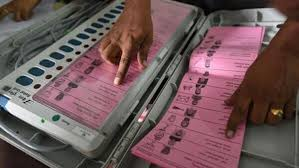
local body polls ,In a significant political and social development, the Andhra Pradesh government has decided to abolish the controversial two-child policy that previously restricted individuals from contesting local body elections if they had more than two children. This policy change marks a notable shift in the state’s approach to family planning and electoral participation. This article explores the implications of this decision, the background of the policy, and its broader impact on politics and society in Andhra Pradesh.
Table of Contents
Background of the Two-Child Policy
1. Introduction of the Policy
The two-child policy was introduced in Andhra Pradesh in 1994 as a measure to promote family planning and control population growth. Under this policy, individuals with more than two children were disqualified from running for local body elections, including positions such as Panchayat members, Municipal Councilors, and other local administrative roles. The rationale behind this policy was to encourage smaller family sizes, which were believed to contribute to better economic and social outcomes.
2. Rationale and Objectives : local body polls
The primary objectives of the two-child policy were to:
- Control Population Growth: By encouraging smaller family sizes, the policy aimed to help manage population growth, which was seen as a key factor in socio-economic development.
- Improve Governance: The policy was also intended to ensure that elected representatives could manage their responsibilities effectively, with the belief that smaller family sizes would lead to better resource management and governance.
- Promote Family Planning: The policy sought to reinforce the importance of family planning and responsible parenthood.
Decision to Abolish the Policy : local body polls
1. Political and Social Context
The decision to scrap the two-child policy has been driven by various factors, including political, social, and legal considerations:
- Political Pressure: The policy had faced growing criticism from various political parties, social organizations, and activists. Critics argued that the policy was discriminatory and unfairly targeted individuals from economically disadvantaged backgrounds, where larger families were more common.
- Legal Challenges: The policy faced legal challenges on grounds of violation of fundamental rights, including the right to family life and equality. The judiciary had been scrutinizing the policy’s impact and its implications for electoral democracy.
- Changing Demographics: Shifts in population growth rates and family planning trends made the policy less relevant in the current context. The government recognized that changing socio-economic conditions warranted a reassessment of the policy.
2. Announcement of Policy Change : local body polls
The Andhra Pradesh government officially announced the scrapping of the two-child policy in a legislative assembly session. The decision was met with mixed reactions from different quarters:
- Government Justification: The government justified the decision by emphasizing the need for inclusive political participation and the importance of allowing individuals to contribute to local governance regardless of their family size.
- Public Reaction: The move was welcomed by many as a progressive step towards ensuring greater democratic participation. However, some critics expressed concerns about the implications for family planning and the potential for increased population pressures.
Implications of the Policy Change : local body polls
1. Impact on Electoral Participation
- Increased Inclusivity: The abolition of the policy is expected to increase electoral participation by allowing individuals with more than two children to run for local body elections. This move aims to broaden political representation and enhance democratic engagement at the grassroots level.
- Diverse Candidates: By removing the restriction, the policy change opens the door for a more diverse range of candidates, which can lead to richer and more representative local governance.
2. Socio-Economic Considerations : local body polls
- Family Planning Dynamics: While the policy was intended to promote family planning, its removal may shift focus towards alternative measures to encourage responsible family planning without imposing restrictive conditions on political participation.
- Support for Large Families: The change may also lead to increased support for larger families, particularly in economically disadvantaged communities, where family sizes are often larger due to socio-economic factors.
3. Political Repercussions
- Electoral Strategies: Political parties may need to adjust their electoral strategies in light of the policy change. Candidates and parties will now have a more diverse pool of potential candidates, which may influence campaign dynamics and voter preferences.
- Policy Reassessment: The decision may prompt a broader reassessment of other policies related to family planning and population control, as well as a review of their effectiveness and impact on various segments of society.
Broader Context and Comparisons : local body polls
1. National and International Perspectives
The two-child policy in Andhra Pradesh was part of a broader trend seen in various states and countries where population control measures were implemented. Nationally and internationally, there have been differing approaches to managing population growth, ranging from incentives for smaller families to comprehensive family planning programs.
2. Lessons from Other Regions
The experiences of other regions that have implemented similar policies can provide insights into the potential outcomes of scrapping the two-child policy. For instance, some regions have successfully transitioned to more inclusive and supportive measures for family planning and electoral participation, which may serve as models for Andhra Pradesh.
Conclusion
The Andhra Pradesh government’s decision to abolish the two-child policy for local body elections represents a significant shift towards more inclusive and democratic governance. By removing the restriction on family size for electoral candidates, the government aims to enhance political participation and representation at the grassroots level. The policy change also reflects evolving perspectives on family planning and socio-economic dynamics. As the state moves forward, it will be important to monitor the impact of this decision on electoral participation, family planning practices, and overall governance. The abolition of the policy marks a progressive step towards ensuring that all citizens, regardless of their family size, have the opportunity to contribute to local governance and community development.







